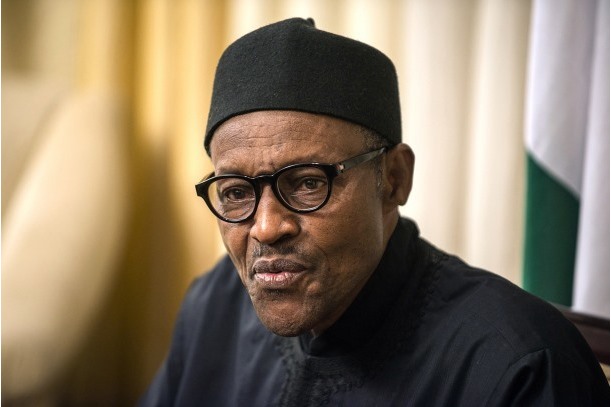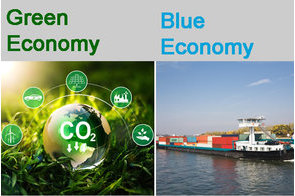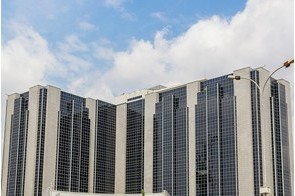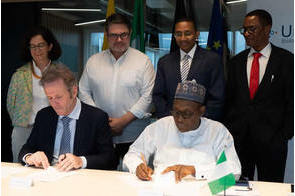Latest News
Emerging markets analysts blame Buhari for Nigeria’s economic downturn

News Highlight
Capital Economics’ John Ashbourne observes that Buhari’s economic policies have turned an unavoidable external shock into a largely self-inflicted crisis.
Barron’s Emerging Market Daily has said President Muhammadu Buhari is responsible for the current economic downturn in Nigeria. Writing on Friday, May 27 -- two days to the first anniversary of Buhari’s administration -- Dimitra DeFotis said: “It has been a year since Nigerian President Muhammadu Buhari became the first opposition leader to unseat an incumbent president, but Nigeria’s economy has little to show for it.”
He quoted global market data to support this view. The Global X MSCI Nigeria exchange-traded fund, which was flat yesterday, had jumped 8% this week, and is now up 8% this year. But the ETF is still down 28% over 12 months.
Capital Economics’ John Ashbourne notes that the relatively peaceful transition of power last year cemented Nigeria as Africa’s largest democracy. Buhari, a former general, has had “significant success” in the fight against the Islamic extremist group Boko Haram. But now, Nigeria is in an economic crisis.
Ashbourne concludes: “Much of the blame for Nigeria’s deepening economic slump must fall on President Buhari’s government: its economic policies have turned an unavoidable external shock into a largely self-inflicted crisis. Turning the situation around will require a more flexible and market-friendly approach than Mr. Buhari has shown so far … We believe that consensus expectations regarding Nigeria are still far too sanguine.
“The economic damage caused by fuel shortages and oil output disruptions were not fully captured in the Q1 GDP figure. The contraction will deepen in Q2. We expect that the economy is on the cusp of a painful recession, and that GDP will fall by about 1% in 2016. This would make Nigeria Africa’s worst-performing large economy.
“It’s also worth noting that Nigeria’s rapid population growth means that a 1% fall in GDP will cut per capita incomes by almost 4%. And the contraction of key industries will add to unemployment in a country where 51% of people between the ages of 15 and 34 are either unemployed or under employed.”
Meanwhile, rebel attacks on Nigerian energy facilities and technical disruptions pose a significant threat to Nigeria’s significant oil output, Eurasia Group analysts, Philippe de Pontet and Ayso van Eysinga, wrote in mid-May.
“Nigeria’s oil sector faces multiple threats, and output is likely to remain far shy of the 2016 budget benchmark for the rest of the year. Much of the recent reporting on the oil disruptions, however, conflates the rebel threat with technical outages, and recent attacks with ones that took place months ago.
“While it is true that four of the country’s biggest export streams – Qua Iboe, Bonny Light, Escravos and Forcados – are partly or totally suspended, the first two are due to technical problems. The latter two were attacked by the Niger Delta Avengers, but the larger attack by far — on Royal Dutch Shell’s 250,000 barrel per day Forcados — took place months ago (in February).
“The attacks on Chevron’s Escravos production … shut in a fraction of the Forcados underwater blast (between 35,000-90,000 bpd) but triggered a rush of misleading media about the Avengers and Nigerian production risks.
“While the Avengers do pose a significant threat, and could dampen average production to around 1.5 million bpd (along with technical disruptions), they are unlikely to cripple the oil sector the way the MEND rebels did (at times) from 2004-9.”
Related News
Latest Blogs
- AML/CFT regulations and data protection require balance in regulating cryptocurrency
- It's time for honest discussions on Nigeria's security architecture
- Driving economic growth through green transition in Nigeria
- CBN is fighting inflation instead of stagflation
- Why electricity privatization failed (2)
Most Popular News
- IFC, partners back Indorama in Nigeria with $1.25 billion for fertiliser export
- CBN increases capital requirements of banks, gives 24 months for compliance
- Univercells signs MoU with FG on biopharmaceutical development in Nigeria
- CBN settles backlog of foreign exchange obligations
- Ali Pate to deliver keynote speech at NDFF 2024 Conference
- NDFF 2024 Conference to boost Nigeria’s blue and green economies






